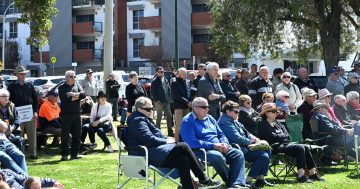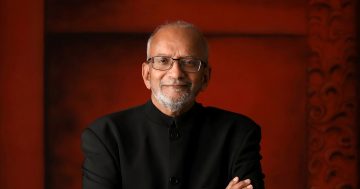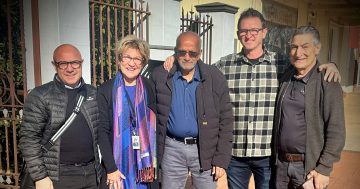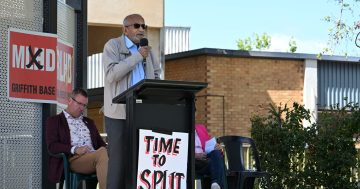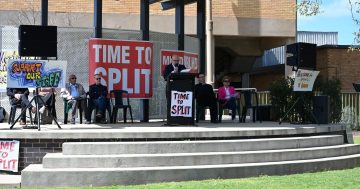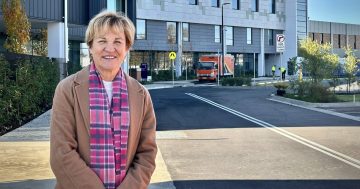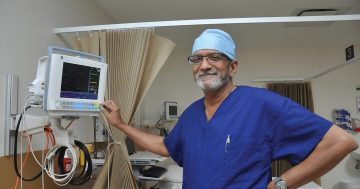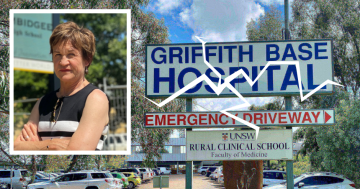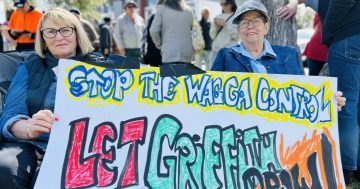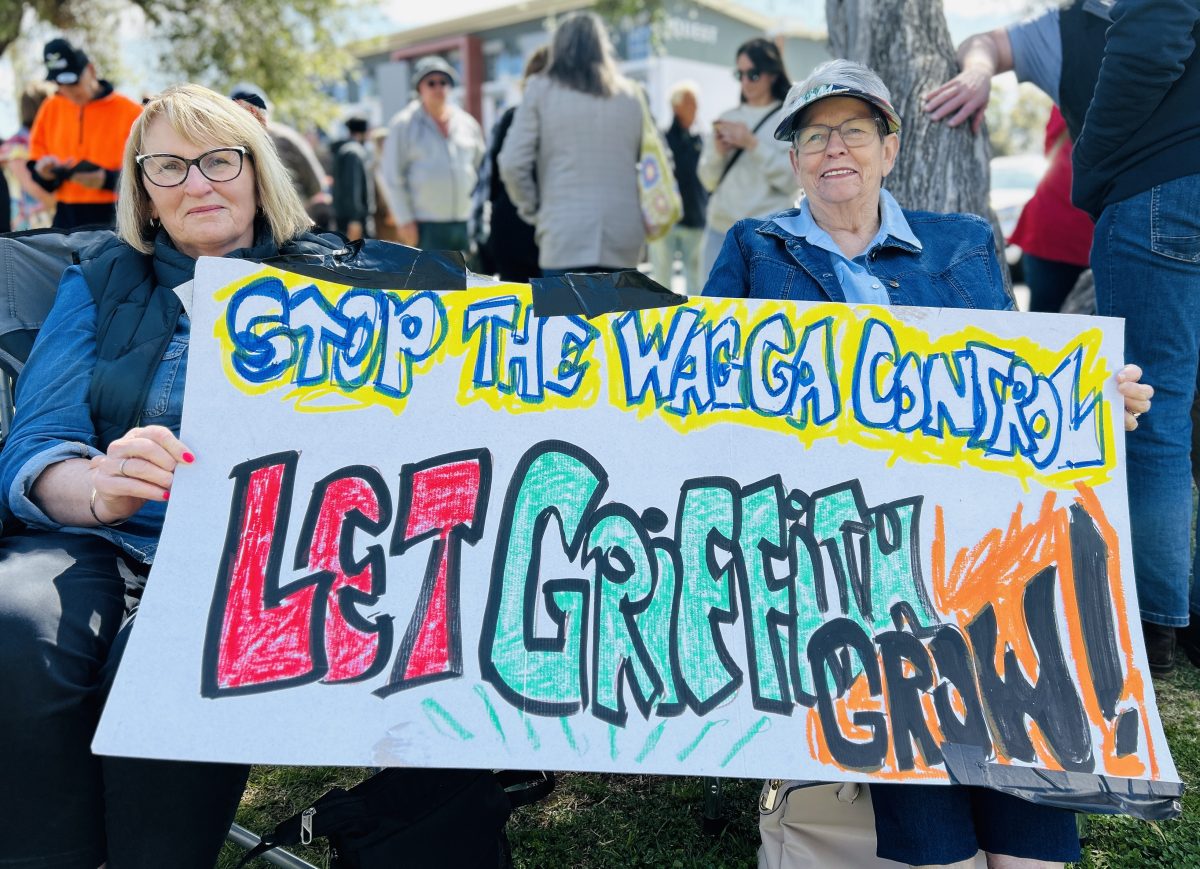
Retired farmer Marlene O’Connell and hospital canteen worker Judy Saddler express support for the split. Photo: Oliver Jacques.
A veteran surgeon has told a protest rally that Wagga bureaucrats and surgeons were actively blocking orthopaedic services in Griffith.
Hundreds of people gathered in Memorial Park on Saturday (20 September) to listen to NSW Member for Murray Helen Dalton, doctors and concerned citizens argue the case for Griffith hospital to split away from the Murrumbidgee Local Health District (MLHD), the Wagga-based bureaucracy that makes decisions on its staffing and services.
One frustration highlighted was the fact that Griffith patients still have to travel two hours to Wagga to get a broken bone treated, despite repeated assurances over the past 25 years that orthopaedic services would be delivered at the town’s public hospital.
Orthopaedic surgeons ‘blocked’ from coming to Griffith
Dr Narayanan Jayachandran (Jaya) told the crowd that orthopaedic surgeons have wanted to come to Griffith on several occasions over the 22 years he’s been working at the facility.
“Many years back, we got an orthopaedic surgeon whose wife was an anesthesiologist … they were flown here and interviewed. We could have had them, but Wagga blocked it,” he said.
He added that years later, two surgeons from a Sydney practice came up with a plan to start orthopaedics in Griffith, but it never eventuated because it needed to be approved by the Wagga surgeons.
“I wanted to get up and scream … what have they done for us? There are so many of them, and yet Wagga has never been able to sort out orthopaedics for us.”
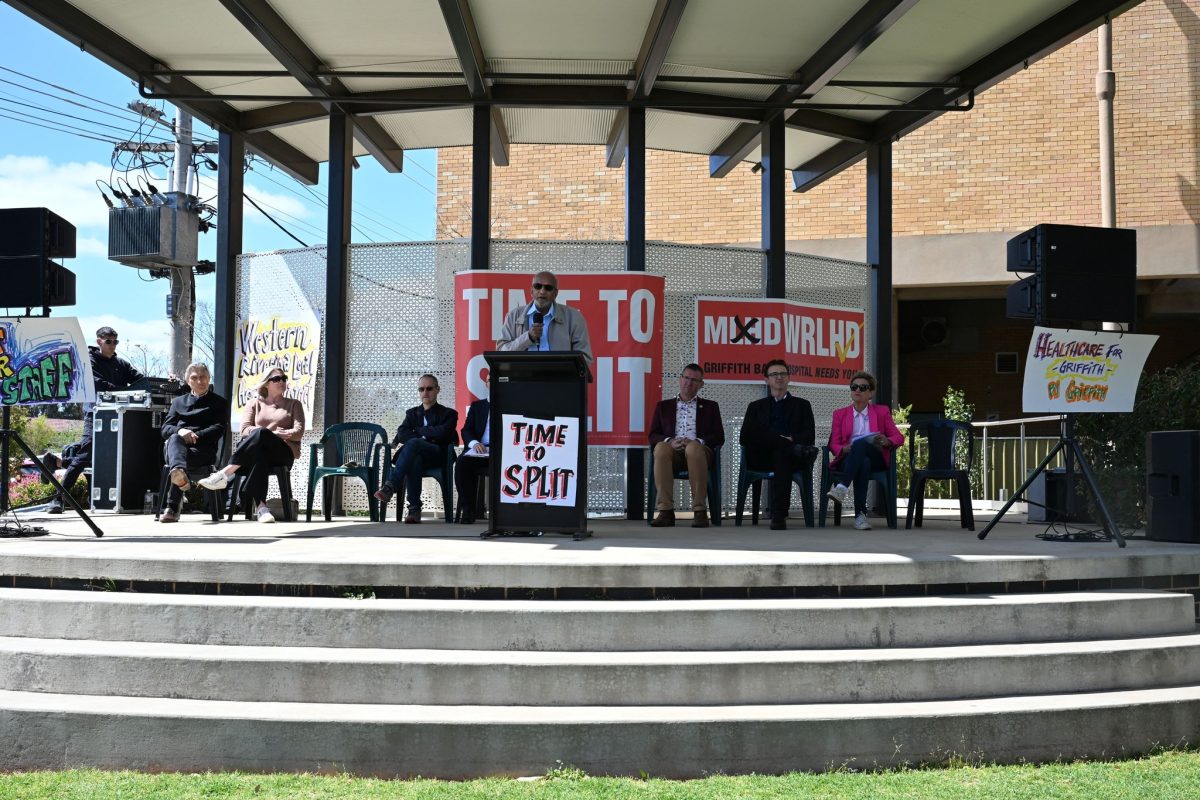
Dr Narayanan Jayachandran said Wagga has blocked services for Griffith. Photo: Denny Fachin.
Winery owner Bill Calabria said Griffith used to have two full-time orthopaedic surgeons before MLHD took control of the hospital, but the Wagga bureaucracy failed to replace them when the duo left town.
MLHD did not respond to questions from Region.
Wagga criticised at the protest
Frustration at the Wagga establishment was a common theme throughout the protest.
At one point, a noisy overhead aircraft forced Dr Jaya to stop speaking.
“Must be a Wagga plane,” he joked.
Attendee Judy Saddler said she feels Wagga gets all the resources and Griffith is left with scraps.
“I refuse to go to Wagga for treatment. I’d rather go to Canberra,” she said.
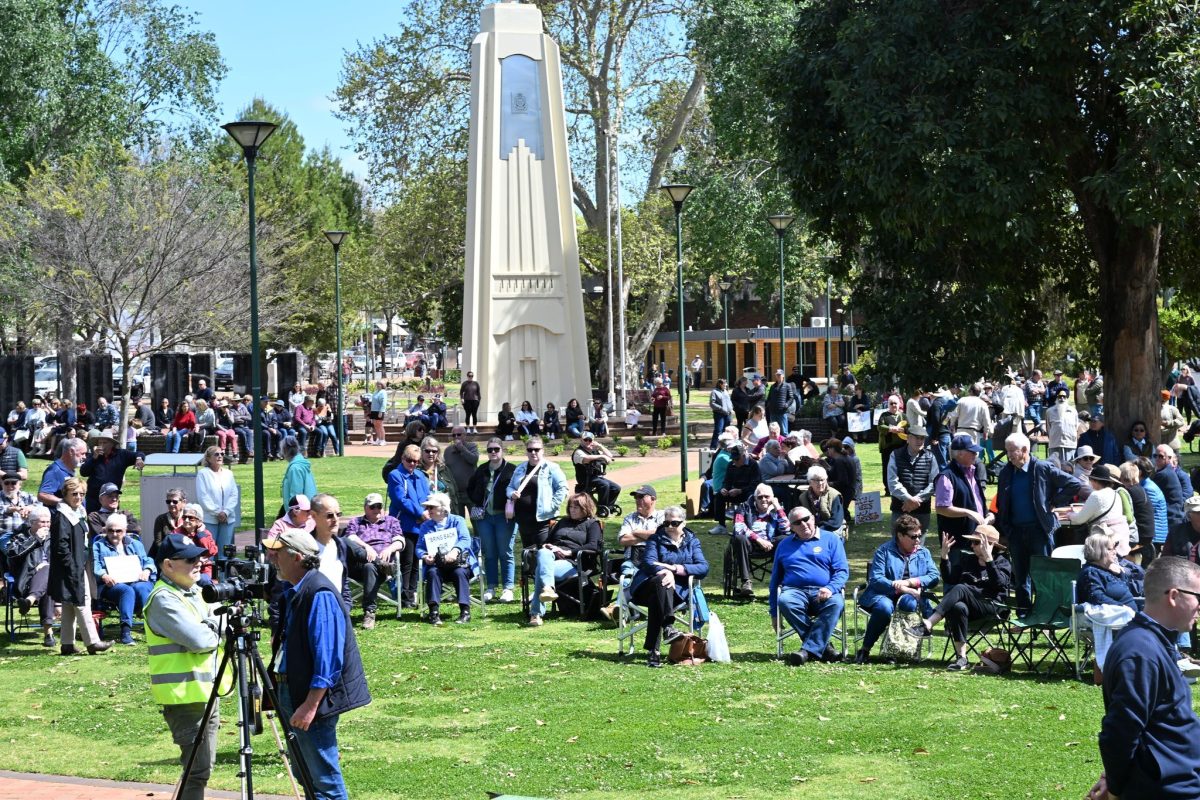
A big crowd attended the rally. Photo: Denny Fachin.
Mrs Dalton has drafted a bill to create a new Western Riverina Health District (WRHD), which would separate Griffith and surrounding towns from the MLHD.
“Decisions made in Griffith for Griffith will always be better than decisions made in Wagga about Griffith,” she said.
“Does [the MLHD] know what it’s like to rush your child to Wagga at midnight?
“Enough is enough. Between 2020 and 2024, Griffith Base Hospital relied on 2000 locum doctors, costing taxpayers $31.8 million. That’s not a health system, that’s a crisis being swept under the rug.”
Griffith Council stays on the fence
Mayor Doug Curran addressed the crowd and said his council were taking a neutral position on Mrs Dalton’s bill.
“Council currently has no motion of support or otherwise for the split; we are simply listening to the arguments for and against the split. However, we do want to see a positive change for the hospital … we also want to ensure communities outside Griffith are not disadvantaged by a split,” he said.
Rally facilitator and real estate agent Brendan Catanzariti was not impressed.
“I understand council’s position, but I would listen to the doctors at the coalface before I listen to the bureaucrats, the fat cats up in the office pushing the pens need to get down on the ground and see what’s happening,” he said.
MLHD response
A parliamentary inquiry into Mrs Dalton’s bill is expected to begin later this year.
While MLHD declined to respond to claims that it blocked orthopaedic surgeons at Griffith hospital, it provided a statement reiterating its opposition to being split up.
“Splitting MLHD would have a detrimental impact on existing healthcare pathways and create unnecessary additional layers of administration,” a spokesperson said.
“Current arrangements allow staffing and community-based services to be networked and shared across the district. Removing those arrangements would require existing services to be replicated, adding significant costs, and would only add to current staffing shortages experienced in healthcare services nationwide.”







